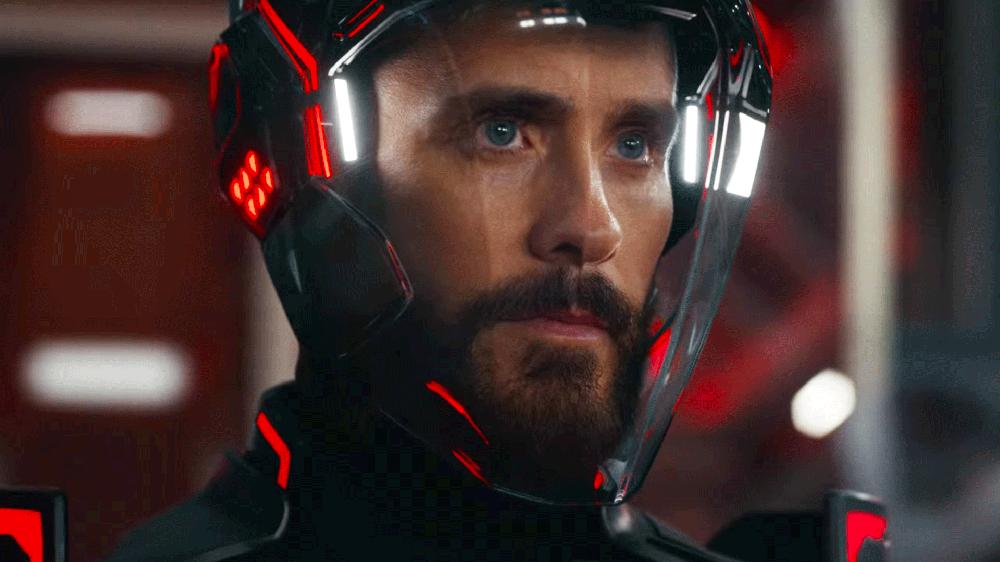Jesse Wigutow, writer of the upcoming Tron: Ares, has discussed how Disney set about creating a sequel to its other long-running sci-fi franchise — without being able to rely on characters that are household names, such as Darth Vader and Luke Skywalker.
Speaking to IGN, Wigutow said that creating the concept for a new Tron film had taken some time, as the movie revives the franchise for the big screen a full 15 years after the launch of 2010's Tron: Legacy, and acts as something of a soft reboot. However, Wigutow said Tron had remained in the public consciousness throughout this time — even if audiences may only remember its sci-fi aesthetic and flashy Light Cycle races.
"Tron is interesting because the expectations are not quite as obvious, I think, as some other franchises," Wigutow said. "So you start a little bit by saying, 'What's an interesting way in? What is a story we want to tell, that needs to be told? What are the expectations? What is an audience hoping to see in another iteration of Tron?' And I think in a really crude way what we came down to was, in the broadest possible way, the aesthetics of Tron are what lives on in the zeitgeist.
"There is a hardcore fanbase that really cares about the mythology and the characters that were carried into Legacy and out of Legacy," Wigutow acknowledged. "But I don't know that the world cares about those characters in the same way they would about a Darth Vader or a Skywalker. So honestly, it was really about, well, what is a reason to tell the story today? And then how do we bring the aesthetics of Tron, the light lines, the Light Cycles, the things that really live on in the world, in the Shanghai Disney theme park, for a story that can carry those ideas into the next generation?"
Set in the near future, Tron: Ares marks a departure from previous Tron films as it brings the franchises' digital aesthetic into the real world. The movie stars Jared Leto as Ares and Jodie Turner-Smith as Athena, combat programs designed to be the perfect AI-powered soldiers, that can be deployed outside of Tron's computer grid and into real-world wars. But, as you'd expect, things don't go quite to plan with this idea.
Originally planned as a direct sequel to Tron: Legacy, Tron: Ares was delayed and ultimately retooled as something that can stand on its own over the course of the last decade. Discussing how the pace of technology — and in particular the growth of AI — had accelerated over this time, Wigutow noted that those working on the project had ended up seeing some of its concepts creep closer to reality.
"We've been working on this for, I want to say close to closer to 15 [years]," Wigutow said of Ares' lengthy development. "And what's interesting is the technology has evolved dramatically, exponentially, from the beginning, from the first conversation. And we've really been chasing it in a way we could not have understood when we began this conversation. I think the idea was, 'Oh, we're going to 40 years into the future, even though we're not telling a dystopia and futuristic story.' And over time it was like, now we're feeling like we're three minutes to the future."
At one point, Disney flirted with the concept of including an AI-generated character in the film, though ultimately reconsidered due to increasing industry concerns around the concept. Still, it's an interesting talking point, just days after Hollywood seemed to unite against the announcement of the world's first "AI actress".
"I think we're going to see more of that," Wigutow said of AI actors, "and I think the industry needs to prepare for it and to find protocol to deal with it."
"The idea of AI was obviously a thing in 2012," Wigutow continued, reflecting on Tron: Ares' early development, "but it felt more of a premise, and it existed very much in the research space, but not in the public sphere the way it does today. So that's a massive difference, and something I think will hopefully make the movie a little more relatable."
That said, the idea of a digital Jared Leto super soldier roaming our streets still seems a little far off, he acknowledged.
"Of course," Wigutow said, "that's very movie-istic in a way, but just the kind of explosive learning of AI to AGI [Artificial General Intelligence, or human-level intelligence], we're really seeing that play out in front of us."
Indeed, the fact that the real world has become far more digital in nature since the original Tron film in 1982 — and even since Tron: Legacy in 2010 — persists throughout Ares, which flips the franchise's usual setting and sees most of its action occur outside of the grid.
"The core of this was, let's do something different this time," Wigutow said. "Let's bring the Tron assets into our world. We are going to live inside a CPU. We do spend some time inside the computer, so to speak, in the grid, but as opposed to two hours in the grid, let's reverse the ratio. And that was a refreshing, fun approach to it.
"So you're going to see Light Cycles ripping up a freeway and wrecking through downtown. All that I think is super exciting. And on another level, the movie just rips, it just moves super fast. It feels like you're sitting on a Light Cycle at Disneyland. It moves really quickly in part by design, narratively. It's almost meant to be real-time.
"I think what Tron did in 1982, what it did in 2010, and what we're hopefully doing in 2025 is delivering serious audio visual excitement. It really delivers on those levels, whether you love the story, don't love the story, whether you miss some of the characters from 2010 that don't carry forward — that's kind of subjective and up to I think the individual audience. But it's fun. It's a fun ride, and I think the audio visuals of it are really special and advanced."
Tron: Ares arrives in theaters next week, on October 10.

 Samsung ripercorre le evoluzioni fotografiche sui Galaxy degli ultimi 15 anni
Samsung ripercorre le evoluzioni fotografiche sui Galaxy degli ultimi 15 anni